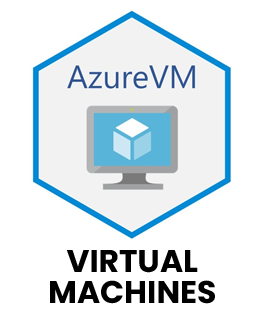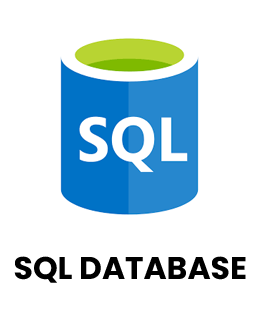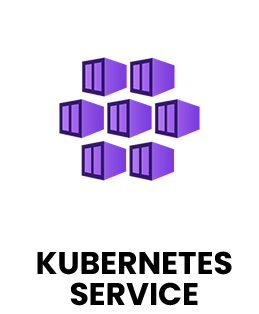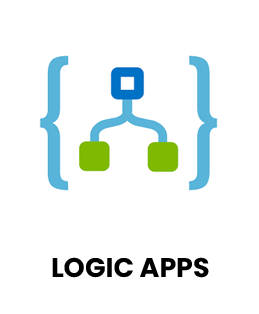The Microsoft Azure certification training is a real-time learning journey with the online weekend course of Azure. The entire bunch of people that instruct the learner is well qualified and skilled to provide Azure training Certified Azure professionals. You will have to pass the Azure Admin (AZ-104) and Azure Architect Design tests Azure Training (AZ-304). Build and develop web apps on an azure cloud platform with hands-on demo projects as a Masters in Azure Cloud, the azure architect design, and the azure administrators' ability.
Additional Info
Why do you choose Microsoft Windows Azure?
1. A high level of availability :
Microsoft has a far larger worldwide reach than any other cloud service provider. Greater redundancy is ensured through a larger number of data centers situated across the world. Azure cloud storage facilities' high availability makes it easy for organizations to transfer their data and apps to where they want them to be.
2. Capabilities for Infrastructure-as-a-Service (IaaS) and Platform-as-a-Service (PaaS) :
Microsoft Azure hosting offers a compelling mix of IaaS and PaaS services, allowing businesses to deploy basic VMs (virtual machines) or whole application stacks across a cloud environment. Azure's IaaS models provide developers access to, monitor, and control distant data center infrastructure, whilst PaaS gives developers a platform to easily create, test, and deploy bespoke apps.
3. Safety and security :
Microsoft ensures the highest level of security and protection for any data stored in the Azure cloud. The cloud platform complies with worldwide industry-specific requirements such as ISO 27001 and HIPAA, in addition to its basic security architecture of Detect, Assess, Diagnose, Stabilize, and Close. Microsoft makes it a priority to strengthen Azure's security solutions every year, drawing on decades of corporate software expertise. Azure fulfills a variety of country-specific requirements, including the UK's G-Cloud and Australia's IRAP.
Furthermore, it is the first cloud service provider to adopt ISO 27018, a new international standard for cloud privacy. Microsoft Azure management offers a better degree of security within the cloud environment with multi-level protection, numerous compliance certifications, cybersecurity controls, and threat mitigation techniques.
4. Flexibility and scalability :
A cloud service provider's scalability is critical, and Azure is no exception. Azure's flexible structure makes it simple to dynamically scale up data storage capacities. Furthermore, Azure cloud's performance-efficient storage offerings assist organizations in integrating data and operations at a cloud-scale. Machine learning, cognitive services, data processing skills, and Internet of Things (IoT) capabilities may all be used by businesses to create, test, and deploy new online apps.
5. Cost-Efficiency :
Microsoft Azure has a pay-as-you-go payment option that enables organizations to better manage their budgets by only paying for the services they've utilized in the previous billing cycle. Enterprises must spend money on hardware and maintenance responsibilities before shifting to the cloud, which amounted to significant payroll costs. It reduces IT administration expenses by staggering amounts by launching client and internal applications on the cloud.
Benefits :
- Small and established businesses alike will benefit from this product :
Azure is suitable for all types of businesses, from small local businesses to multinational companies. It's readily expandable to match your IT requirements, and it's priced on a pay-as-you-go basis to fit any budget. Businesses may save money on in-house IT expenditures, such as hardware and maintenance, by launching and storing internal and external apps on the cloud.
- Enhances and complements your present IT infrastructure :
Azure lets your IT staff focus on your company rather than worrying about in-house skills or managing overworked or underutilized equipment. The platform allows you to quickly and easily deploy your existing apps with little downtime. The learning curve is shortened with an integrated development environment, allowing teams to understand the platform fast. Furthermore, the platform is present in more countries than Google or Amazon, allowing for quicker content delivery and improved user experience. Azure is scalable, so it can expand with your business, and you only pay for what you need.
- IaaS and PaaS are leading the way :
Azure, which is at the forefront of IaaS and PaaS, allows for quick deployments. Companies can choose whether to operate independently or through a public cloud in a hybrid cloud environment. You may also choose how connected to the internet you want to be if you want to be connected at all. Meet all of your IT and service requirements without having to worry about the infrastructure.
- Disaster recovery, security, and compliance :
Microsoft recognizes the significance of security and has built Azure to keep you one step ahead of the competition when it comes to data protection. The platform as well as the end consumers are both safe. Multi-factor authentication and advanced disaster recovery capabilities that can restore data in a matter of hours are among the additional services available to meet corporate demands.
- Applications tailored to a certain industry :
Due to the high-risk and sensitive nature of several sectors, Azure has created custom apps to meet specific requirements. Azure's numerous capabilities, such as offline cloud services, personalized security needs, simpler compliance, and updated client apps, help government, health care, manufacturing, and financial industries tremendously.
Certifications :
1. Exam AZ-900: Microsoft Certified: Azure – Fundamentals :
- Learn the basics of cloud concepts including High Availability (HA), Scalability, Fault Tolerance (FT), Disaster Recovery, and the distinction between CapEx and OpEx.
- Regions, Availability Zones, Resource Groups, Azure Resource Manager, and Azure Resource Manager are all components of the Azure architecture.Describe DDoS defense, Azure Firewall, and Network Security Group (NSG) Explain Azure subscriptions, how to buy Azure services and goods, how to get a free Azure account, and how to use the price calculator.
2. Microsoft Certified: Azure AI – Fundamentals Exam AI-900 :
Candidates who want to obtain this new foundational level certification must have a basic understanding of artificial intelligence (AI) and machine learning (ML), as well as how to use them on Microsoft Azure.
Covered Areas :
- Identify aspects of typical AI workloads, as well as guiding principles for responsible AI, by describing AI workloads and concerns.
- Identify typical machine learning kinds and cases, as well as essential concepts of machine learning on Azure.
- Describe the characteristics of Azure computer vision workloads, as well as the typical types of computer vision solutions, Azure tools and services for computer vision jobs, and Azure tools and services for NLP workloads. Identify typical use cases for conversational AI and describe the properties of conversational AI workloads on Azure. Conversational AI Azure services
3. Exam DP-900: Microsoft Azure Data Fundamentals :
Candidates who wish to obtain this new certification should be familiar with basic data principles including relational and non-relational data, as well as how to apply them to the Microsoft Azure architecture.
Covered Areas :
- Describe the many forms of core data workloads, batch and streaming data, and data analytics fundamentals.
- Compare PaaS, IaaS, and SaaS delivery paradigms to describe relational data workloads and relational Azure data services
- Identify essential relational data management activities, such as providing and deploying relational data services and specifying SQL query methodologies for data. Describe non-relational data workloads and non-relational data options on
- Azure, as well as non-relational data service provisioning and deployment.
be analytical workloads and contemporary data warehouse components. Describe Azure data input and processing, as well as Microsoft Power BI data visualization.
4. Exam DP-900: Microsoft Certified: Azure Data – Fundamentals
Candidates who wish to obtain this new certification should be familiar with basic data principles including relational and non-relational data, as well as how to apply them to the Microsoft Azure architecture.
Covered Areas :
- Describe the many forms of core data workloads, batch and streaming data, and data analytics fundamentals.
- PaaS, IaaS, and SaaS delivery paradigms to describe relational data workloads and relational Azure data services.
- Identify essential relational data management activities, such as providing and deploying relational data services and specifying SQL query methodologies for data. Describe non-relational data workloads and non-relational data options on Azure, as well as non-relational data service provisioning and deployment.
- Describe analytical workloads and contemporary data warehouse components.
- Describe Azure data input and processing, as well as Microsoft Power BI data visualization.
Required Skills :
1. Configuration of Networks :
For many IT experts, TCP/IP internetworking is a difficult topic to grasp since it is so vast and deep. This complexity grows with Azure since you will never see the hardware underlying the Azure Networking Stack. You must be familiar with the following networking activities to be a good Azure Administrator:
2. Virtual Network Deployment and Configuration :
Routing Paths Orchestration, particularly in a Hybrid Cloud
Managing your VMs' public and private IP addresses, as well as a few other Azure resources.
3. Resources and Log Analytics should be monitored :
To build Azure Monitor log queries, you need to understand how to utilize Log Analytics in the Azure interface. A basic grasp of how to accomplish the following activities is also required:
- Create a basic query with Log Analytics.
- Recognize your data's schema.
- Results can be filtered, sorted, and grouped.
- Set a time limit.
- Make graphs.
- Query saving and loading
- Query export and sharing
4. Compute :
Infrastructure-as-a-service (IaaS), which effectively corresponds to cloud-based virtual computers, is most often linked with the Azure Administrator (VMs). To that end, you need to be conversant with one or both of the Hypervisor platforms in order to be a successful Azure Administrator:
- Microsoft created the Hyper-V virtualization technology.
- vSphere is a virtualization platform developed by VMware.
5. Administrative tasks linked to virtual machines include :
Virtual Machines (VMs) are deployed into Virtual Networks.
Configuring a virtual machine for the best cost, performance, and security.
Backing up virtual machines and perhaps offering failover recovery
Containers are a more recent method of virtualizing services, and Docker is well-represented in Azure. As a result, knowing how to instal, manage, and monitor containers is essential.
6. Storage Implementation and Management :
Administrators have virtually unlimited storage in Azure. You'll need room to store virtual hard drives, database files, application data, and other potentially valuable information. You should also learn Powershell/CLI commands that will help you build and delete storage.
It is also your duty to utilize Microsoft products in accordance with the Cloud Computing shared responsibility model. Among the most important responsibilities are:
- Protecting Data from Unauthorized Access
- Making a data backup and making it simple to restore when needed.
- To ensure company compliance, configure long-term archive storage.
7. Implementing Security And Identity Protection :
Because your company's sensitive data is stored on someone else's infrastructure, the security stakes in the Azure public cloud are high. Because of the shared responsibility paradigm in cloud computing, you, as an Azure Administrator, are responsible for utilising Microsoft's extensive security safeguards. You'll also want certain representative abilities, such as data encryption in transit, at rest, and in usage. Preventing unauthorised access to Azure Active Directory accounts. All of your Azure resources' attack surface is being reduced.
PayScale :
The Microsoft Certified Azure Solutions certification is at the advanced level. Two examinations (AZ-303 and AZ-304) are required to get this certification. A Microsoft Certified Azure Solutions Architect Expert's average pay is projected to be about USD 135K. Associate in Azure Administration , Azure Administrator Associate is a Microsoft certification. Not only is the Azure Administrator Associate one of the highest-paying certifications, but it's also the most sought-after Microsoft Azure credential.







































